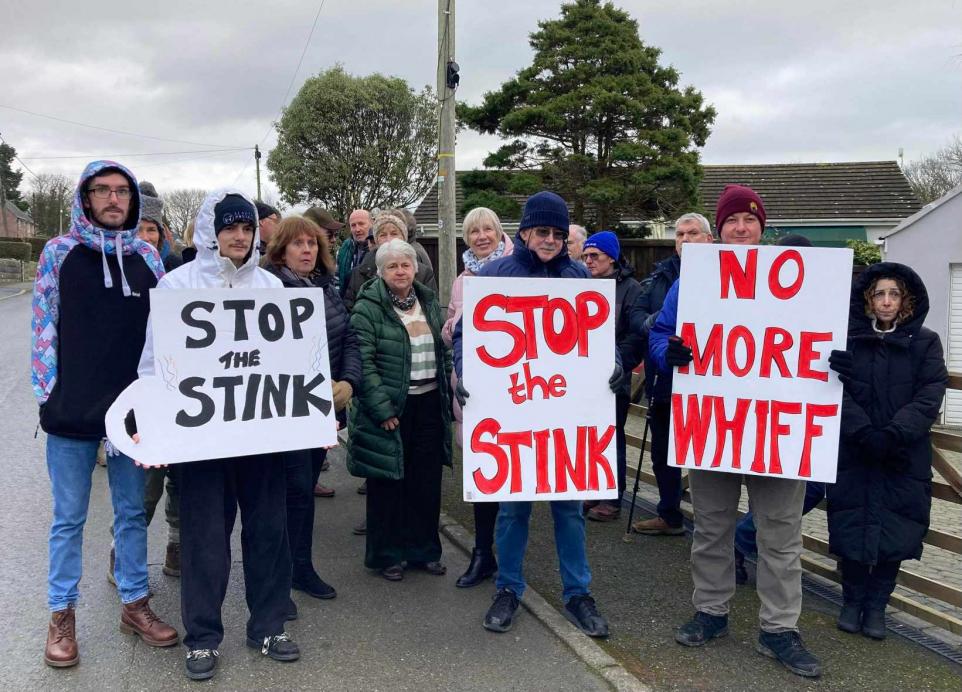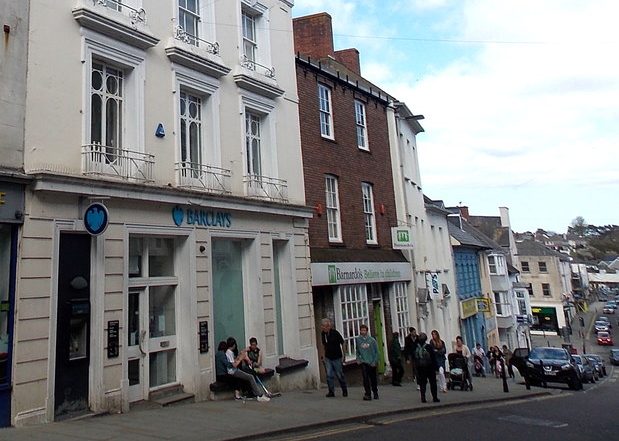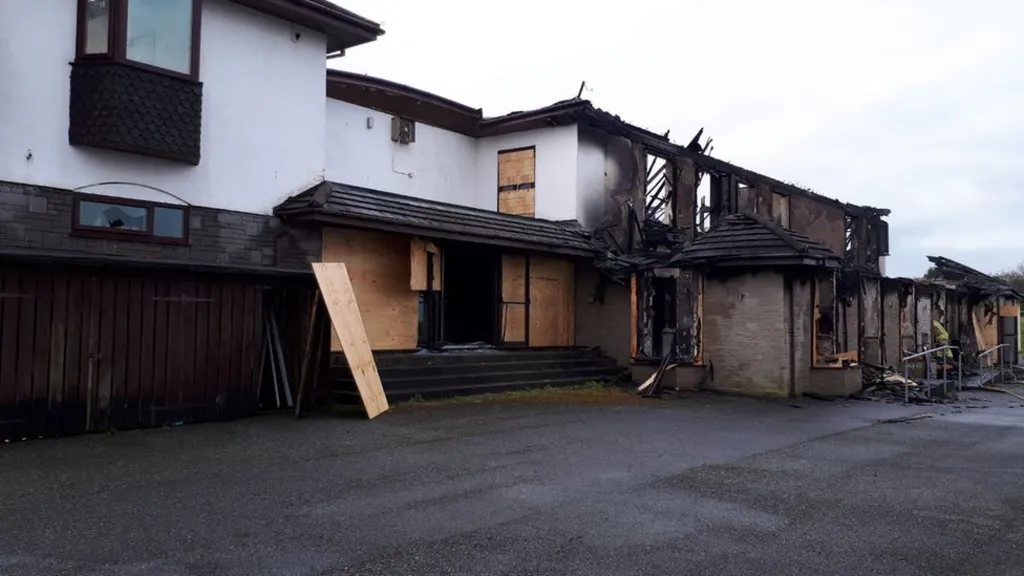Politics
CIEH urges Liz Truss to tackle twin crises of climate change and cost of living

FOLLOWING the election of Liz Truss MP as the new leader of the Conservative Party, and new Prime Minister of the United Kingdom of Great Britain and Northern Ireland, the Chartered Institute of Environmental Health (CIEH) has urged the new Prime Minister to prioritise environmental health measures as a means of tackling the twin crises of climate change and soaring cost of living.
The new Prime Minister will be faced with the difficult task of leading the country amidst soaring energy bills, rampant inflation, and concerns regarding energy security in the immediate term, while also having to ensure the UK meets its mid and long-term climate change ambitions.
Ofgem’s recent decision to increase the price-cap to £3,549 means millions of households will be plunged into fuel poverty this winter. Furthermore, their decision to implement a quarterly price cap means that consumers are at risk of even further increases in January, with market analysts predicting January’s price cap to be as high as £4,650.
While Liz Truss promised “more help is coming” with respect to tackling soaring energy bills, CIEH urges that she introduces an Emergency Budget which will freeze energy bills and introduce further financial support to households struggling with their energy bills, as well as introducing a raft of energy efficiency measures. This will have the dual impact of both lowering bills and supporting households through this spiralling cost of living crisis, while also effectively tackling climate change.
Longer term, the new Prime Minister will also have to ensure we have robust policies in place to improve air quality, tackle rising concerns regarding water companies dumping raw sewage into our waterways and ensuring that any new trade deals do not result in reduced food standards.
Ross Matthewman, Head of Policy and Campaigns at the Chartered Institute of Environmental Health, said:
“We would like to congratulate Liz Truss on her successful campaign to become the new leader of the Conservative Party and the new Prime Minister of the United Kingdom of Great Britain and Northern Ireland.
She takes over the running of the country at a vital time, with concerns about inflation, soaring energy bills and the ongoing war in Ukraine threatening our energy security. We at CIEH urge Prime Minister Truss to prioritise strengthening environmental health measures as a means of both meeting these urgent challenges, as well as ensuring the UK remains a world leader in meeting our climate change objectives.
Whether through immediate policies such as freezing energy bills, reversing the quarterly price cap, and targeted energy efficiency measures to better insulate the poorest households, or through long-term measures such as enhancing air quality targets, tighter regulation of water companies dumping raw sewage in our waterways, or ensuring new trade deals either meet or enhance or food standards. Prioritising environmental health policies should be at the forefront of this new administration and we at CIEH look forward to proactively engaging the new government on these urgent and important issues.”
News
Withyhedge Landfill faces political allegations and regulatory enforcement

STEPHEN CRABB MP has vociferously criticised the Welsh Labour Government for its management of the Withyhedge Landfill in Pembrokeshire, claiming it has turned the area into a “dumping ground” for waste from across Wales. Mr. Crabb, supported by Paul Davies MS, alleges that substantial lorries deliver waste daily to the site, causing significant distress to local residents. The MP has repeatedly written to the First Minister, demanding immediate intervention, yet claims to have received no response.
Compounding the controversy, Mr. Crabb highlighted a substantial £200,000 donation to Vaughan Gething’s recent election campaign from the landfill’s owner, questioning the impartiality of regulatory practices. Despite ongoing political efforts, Mr. Crabb asserts that resolution lies solely with the Welsh Government, which has the ultimate authority to address these grievances.
Meanwhile, Natural Resources Wales (NRW) has escalated its enforcement actions against the site’s operators, Resources Management UK Ltd (RML), amid persistent community complaints about odour and gas emissions. A recent Regulation 36 Enforcement Notice demands a series of remedial actions by RML, with deadlines stretching into May 2024. These measures focus on improving the site’s gas management infrastructure and capping exposed areas to mitigate odour issues.
Huwel Manley, Head of South West Operations at NRW, expressed understanding of the community’s frustration, emphasizing the urgency of the required actions. “We are committed to ensuring RML Ltd. deliver these actions rapidly and effectively. Continued non-compliance will lead to further measures, potentially including a suspension of the environmental permit,” stated Mr. Manley.
Pembrokeshire County Council, represented by Chief Executive Will Bramble, also voiced disappointment over the ongoing issues, affirming full support for NRW’s stringent enforcement steps. The Council and NRW are working closely to monitor the situation and have encouraged the public to report any odour incidents promptly to aid in effective resolution.
As the deadline approaches, all parties involved are under increasing pressure to demonstrate tangible improvements and ensure the health and well-being of Pembrokeshire residents are prioritised.
Politics
Barclays closure in Haverfordwest sparks calls for banking changes

A CALL for Pembrokeshire County Council to potentially change its banking arrangement with Barclays, after the bank announced it was closing its county town branch, is expected to be turned down next week.
Barclays Bank in Haverfordwest, located on the town’s High Street, is to close on May 10.
The council has had a banking services contract with Barclays since 2013, with the most recent contract – for four years – signed last May following an independent review.
Councillor Huw Murphy, in a notice of motion to be heard by Pembrokeshire County Council’s Cabinet meeting of April 22, is asking the council to review its banking arrangements with Barclays following the announced closure.
“The loss of many banking facilities within Pembrokeshire over recent years has had a detrimental impact on many town centres such as Tenby, St Davids, Fishguard, Milford Haven, Narberth, Newport and Pembroke and Pembroke Dock and will soon impact Haverfordwest with the loss of Barclays bank to the town.”
He said the loss of a branch “not only impacts upon town centres and businesses but also disproportionately impacts the elderly who are less likely to embrace on-line banking options”.
After the Haverfordwest closure was announced, a spokesperson for the bank said that the Haverfordwest branch only had 32 regular customers who used the branch exclusively for their banking and do not interact with Barclays in any other way.
A report for cabinet members says, in terms of the impact on Pembrokeshire residents, Barclays has said that it is “not leaving Haverfordwest and [will] continue to provide face-to-face support for those who need it” via community locations.
It adds: “Everything else can be done via alternative channels such as everyday transactions via the Post Office. We will be making personal contact with our regular and vulnerable branch users to discuss their options and guide them through alternative ways to bank.”
Two options were presented to cabinet following Mr Murphy’s motion, to retender the banking services contract, and, the favoured, to work with Barclays to ensure a community location is set up in Haverfordwest.
The report says the costs associated with moving to a new service provider “can be excessive and in some cases greater than the cost of the annual contract value,” adding: “Whilst the costs can vary between local authorities it can be in excess of £50,000.”
For the second, favoured option, the report says: “An integral part of the branch closure communication, Barclays advised that they will be setting up a community location in Haverfordwest.
“Whilst this is a change to how Barclays currently operate in Haverfordwest, this concept mirrors the successful implementation of a hub located within The Giltar Hotel in Tenby that operates twice a week.”
It adds: “Discussions have commenced with Barclays to see what the council can offer in terms of locations.”
Cabinet members are recommended to back the second option.
Community
Burned down hotel to be used for social housing

A SCHEME to build 38 affordable and social housing units on the site of the fire-ravaged former Cleddau Bridge Hotel, Pembroke Dock is expected to be backed by senior Pembrokeshire councillors next week.
Members of Pembrokeshire County Council’s Cabinet, meeting on April 22, are recommended to support a contract with developer Castell Group Ltd for the mix of affordable homes and social housing units at the site, with the actual contract details expected to be discussed in a private and confidential session.
A report for members ahead of the meeting says: “The potential development site on the former Cleddau Bridge Hotel site, Pembroke Dock has been up for sale for some time, and its purchase by Castell Group Ltd (‘Castell’) is now imminent.
“Following completion of their purchase, Castell will submit an application for planning consent to develop the land for affordable and social housing. It would see the development of a high-profile site with visual impact on surrounding areas that has sat dormant for many years.”
Castell has approached the housing service to determine whether there is an interest in working with them to bring forward the development as a housing site, the report says.
Castell Construction Ltd, the delivery arm of Castell, specialises in the construction of affordable / social housing, typically for registered social landlords across south Wales.
An initial proposal says the development, if backed, would see 12 one-bedroom flats, 15 two-bed houses, five three-bed, two four-bed, and four two-bed bungalows, the report adding: “This site would help towards both the council’s 300 new home target and also Welsh Government’s 20,000 new homes target.”
It adds: “The proposal by Castell Construction Ltd is for a development programme of 18 months following planning permission being secured. Castell Construction Ltd estimate commencing the development in March 2025, which would mean completion in autumn 2026.”
Delegation of the decision to enter into the works contract to the Director for Social Services and Housing is sought, and Cabinet is also being asked to delegate the decision to proceed with the land acquisition to the Assistant Chief Executive.
The development package would be part-funded from the housing revenue account, the remainder from the Social Housing Grant and/or second homes premium for affordable housing if it becomes available for the Housing Service to use in this manner.
The proposals would be subjected to an as-yet unsubmitted planning application; if granted Castell Construction Ltd hopes to start the development in March 2025, finishing in autumn 2026.
In 2023, an unrelated application by a different applicant, to demolish the remnants of the hotel and replace it with a care home was approved.
In a prime location at one of the entrances to Pembroke Dock the former Cleddau Bridge Hotel has been derelict since a fire in March 2019, which brought emergency services from as far afield as Ammanford, Aberystwyth and Swansea.
Mid and West Wales Fire and Rescue Service previously said the fire was started by a deliberate act.
Following a fire investigation, Dyfed-Powys Police said they found there to be insufficient evidence to identify a suspect.
-

 Business4 days ago
Business4 days agoBluestone National Park Resort payments expected to end
-

 Community6 days ago
Community6 days agoThe Harbourmaster: Special rail excursion draws crowds to Milford Haven
-

 News5 days ago
News5 days agoDragon LNG ‘monitoring’ scrap car blaze in Waterston
-

 News6 days ago
News6 days agoSearch for Luke, 19, reported missing in the Pembroke Dock area, continuing
-

 News3 days ago
News3 days agoSearch for missing teenager Luke continues at Pembroke Dock
-

 Crime4 days ago
Crime4 days agoEstate agents admit health and safety failings following fatal market incident
-

 News3 days ago
News3 days agoMan jailed after scarring police officer in Narberth altercation
-

 News19 hours ago
News19 hours agoPolice issue update on the search for Luke, missing from Pembroke Dock























